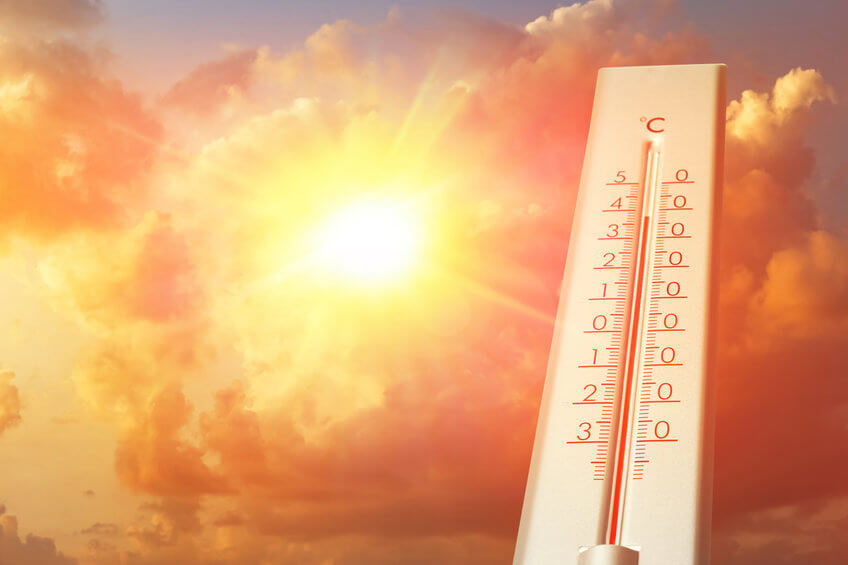Preventing global temperatures from rising 1.5°C above pre-industrial levels has been a rallying cry for scientists and activists hoping to avoid the worst effects of the climate crisis.
That goal may no longer be obtainable, as scientists say we will likely blow past the 1.5°C mark in at least one of the next five years. The World Meteorological Organization (WMO) released a report in May that said there is a 50–50 chance the planet’s annual temperature will exceed a 1.5°C rise between now and 2026. Seven years ago, the probability of this happening was close to zero.
“A single year of exceedance above 1.5°C does not mean we have breached the iconic threshold of the Paris Agreement, but it does reveal that we are edging ever closer to a situation where 1.5°C could be exceeded for an extended period,” WMO researcher Leon Hermanson said in a statement on May 9.
That same week, two more climate revelations emerged. One, that a record number of companies collectively worth more than US$38 trillion have now committed to the Science Based Targets initiative (SBTi) aligned with limiting warming to 1.5°C. Two: the 12 largest oil companies in the world continue to bet against a climate-safe future. According to an investigation by The Guardian, ExxonMobil, Chevron, Shell and nine other oil majors are planning to invest US$103 million a day for the rest of the decade on new fossil fuel extraction, including 195 “carbon bombs” – enormous oil and gas projects that will each emit more than a billion tonnes of CO2.
The Guardian found that the United States is the “leading source of potential emissions,” with 22 new projects planned. Canada came in sixth. Some of Canada’s largest banks, including the Royal Bank of Canada and Toronto-Dominion Bank, more than doubled their financing of the oil sands in 2021 to $16.8 billion, according to data from the Rainforest Action Network, despite signing on to the UN’s Net-Zero Banking Alliance.
Russia’s invasion of Ukraine has complicated the global energy picture, sending oil prices soaring and provoking some politicians in Western nations to call for increased domestic fossil fuel production in the name of energy security. The European Union has pledged to speed up its energy transition to renewables while weaning itself off Russian gas and oil. Meanwhile, Russia has pivoted to sell its oil to Asian countries at a discount.
“I understand some countries may look at new fossil fuels, but they should remember it takes many years to start production,” said Fatih Birol, the head of the International Energy Agency. “[Such projects] are not the solution to our urgent energy security needs, and they will lock in fossil fuel use.”
At the launch of the WMO’s alarming State of the Global Climate report, UN Secretary-General António Guterres released a new roadmap to jump-start the energy transition, which he called the “peace project of the 21st century.”
The plan would clear the way for more wind and solar projects, remove intellectual-property restraints on renewable technologies, end fossil fuel subsidies and triple global spending on green energy to US$4 trillion per year.
“Renewable energy technologies, such as battery storage, must be treated as essential and freely available global public goods,” Guterres said at the press conference.
“Removing obstacles to knowledge-sharing and technological transfer – including intellectual-property constraints – is crucial for a rapid and fair renewable energy transition.”
While a handful of companies like Tesla do have an open-patent philosophy, there has been some pushback against the idea from some who suggest it will be a barrier for small innovators.
The bottom line, according to Guterres: “We must end fossil fuel pollution and accelerate the renewable energy transition before we incinerate our only home.”
Five ways UN chief António Guterres wants to jump-start the energy transition
A roadmap from the UN Secretary-General to avoid the worst impacts of climate change.
-
Make green technologies “global public goods”
United Nations Secretary-General António Guterres wants more knowledge-sharing (and less intellectual property constraints) when it comes to renewable innovations – particularly those that involve battery storage. He calls for a global coalition of governments and tech companies focused on fast-tracking better battery storage.
-
Secure and scale up minerals
The energy transition needs minerals, such as cobalt and lithium, for electric vehicle batteries. The problem is that many of these necessary minerals are concentrated in a handful of countries. Guterres says that renewable energy won’t be able to flourish without international cooperation and government incentives to build supply chains.
-
Cut red tape for renewable projects
Governments must streamline their approvals processes for solar and wind projects in order to decarbonize electricity grids at a faster pace. For Guterres, policies that support renewable energy development are “fundamental to reduce market risk and drive investment into the sector.”
-
Stop subsidizing fossil fuels
Every minute, oil, gas and coal companies around the world collectively receive around US$11 million in subsidies, according to the UN. “While people suffer from high prices at the pump, the oil and gas industry is raking in billions from a distorted market. This scandal must stop,” Guterres says.
-
Triple investments in renewable energy
The world needs to boost private and public investment in renewable energy to US$4 trillion per year. This would include a dramatic scale-up in investments from commercial banks.







